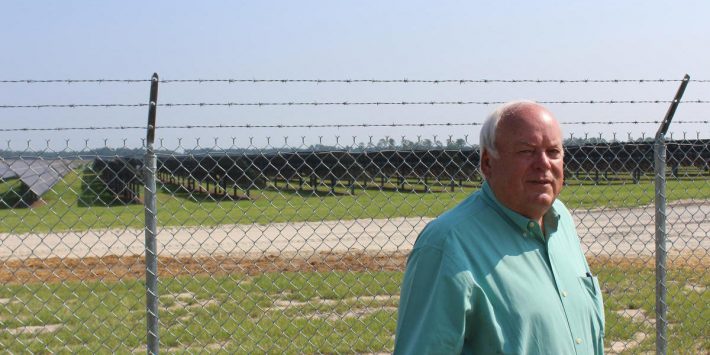Georgia companies said they’re worried about the impact of a new 30 percent tariff on imported solar panels and cells.
Georgia used to manufacture solar panels, but now most solar manufacturers are based in China.
President Donald Trump approved a thirty percent tariff on Monday, which industry groups said could lead to 23,000 job cuts nationally.
“It will result in the delay or cancellation of billions of dollars in solar investments,” Trump said.
Don Moreland with the Georgia Solar Energy Association said it will have short-term impacts such as fewer people being hired to install new panels.
“Georgia could lose up to 2,000 full-time equivalent solar jobs,” Moreland said. “Some projects will not get built because the pricing has gone up and they won’t be financially feasible anymore.”
Georgia consistently ranks in the top ten for generating solar energy in the United States and has nearly 4,000 workers currently in the industry.
And most solar panels aren’t on residential or commercial rooftops in Georgia. Large utility solar “farms” owned by companies like Georgia Power have acres and acres of panels planted like crops on the ground to generate electricity.
Georgia Public Service Commissioner Bubba McDonald said it would be hard for regulators to approve new solar projects if they’re more expensive.
“We will not approve anything that’s above the avoided cost of energy at this time and the avoided cost is what our cheapest source of generation is at the time of need,” McDonald said.
Georgia Power announced it plans to add up to 1,600 megawatts of renewable energy capacity by 2021, but it’s not clear if those plans will be impacted by the new tariff. The company currently has about 900 MW of solar capacity in operation.
McDonald said he expects it will be a setback to the state’s progress on solar capacity.
“When you raise the price, you cut down the demand for it,” said Bubba McDonald. “When you cut down the demand for it, you don’t have as many people trying to build solar.”
For solar companies installing solar panels on residential homes, which is a smaller segment of the market in Georgia, the impact may be lighter.
Russell Seifert is founder of Kennesaw-based Creative Solar USA.
“By doing a tariff like this, it’s put a lot of people on the fence and it’s going to create a lot of hesitation,” Seifert said. “Folks that are looking to buy solar and have it installed are going to have reservations. It’s made it a little bit more work for us to educate them on the impact, and in my opinion it’s going to be minimal.”
Seifert said companies like his have been preparing for the tariff for months and expects the industry overall will be able to rebound.










